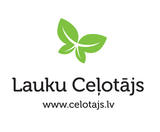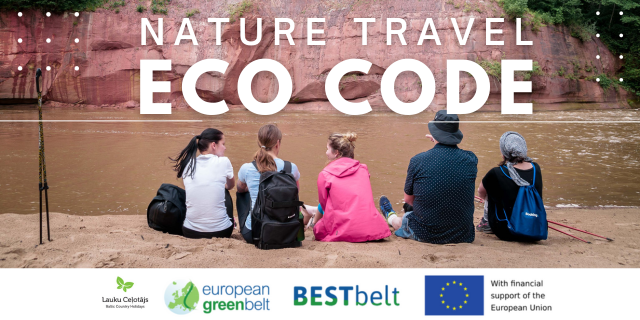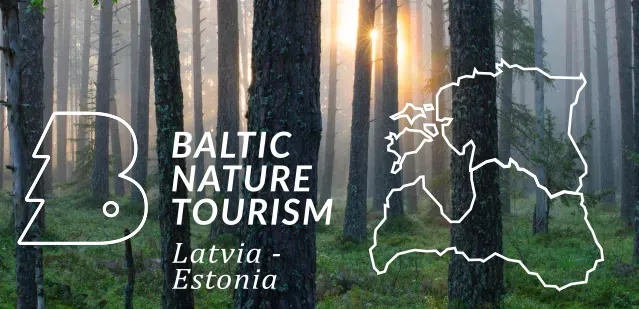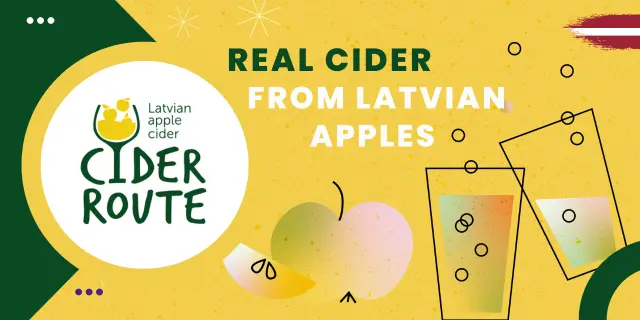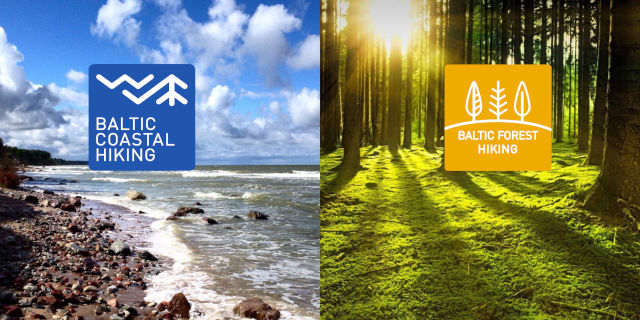

"Tasty to the Left, Tasty to the Right" in the Jēkabpils Administrative District and Sēlija, September 11-12
It is a lovely coincidence that on the birthday of national poet Rainis (September 11, 1865) and the date of his death (September 12, 1929), both shores of the Daugava River will be welcoming guests with set tables. A series of home cafés will open their doors to guests on the Left Bank of the River, where Rainis was born, and the Right Bank, where he lived as an adult. Look for that which is different, and you will find that which is in common - people who are prepared to open their homes and their hearts to travellers.
Jēkabpils was once home to a duke, and it has always been at the crossroad of eras, destinies and multinational culture. This is the start of a trip to the Right Bank of the Daugava, where the Krustpils Administrative District is waiting like a kind host. Gourmands will enjoy old and delicious dishes from the kitchens of grannies and of noblemen. There will be original homemade products, inspiring life stories, enriching practical skills and knowledge, and various technical and creative activities. Sit down that the table, taste and learn about the multifaceted nature of this region. You will be welcomed by people whose lifestyle is based on piety toward traditions, but a view that is focused on the future. There are people who live in the countryside and have creative lives.
There are islands throughout Sēlija, but where is Sēlija? If we look from the side of Rīga, then we see a territory that starts in Jaunjelgava or Mazzalve, depending on the road you take. It stretches to Kaplava and exists between the Left Bank of the Daugava and Latvia's borders with Lithuania and Belarus. These are the lands of the ancient Selonian tribes. Life taught them to be self-confident and satisfied with the processes of their lives. Each island had its own laws, habits and celebrations. Doors were always opened hospitably to travellers, and silent closing of black swamp oak gates applied to those who wanted to live in Sēlija and change it with power or slippery slyness. People learned to bury their riches under white swamp moss so that the greedy eyes of others would not find it and steal it.
21 cafés welcoming guests during "Home Café Days" in the Jēkabpils Administrative District and Sēlija.
All events can be found under "Home Cafés" or on the "Map" (in Latvian).
Follow along with the news and be the first one to learn about new events!
|
|
Plan a trip to the Jēkabpils Administrative District and Sēlija to enjoy some leisure at the birthplace of Rainis!
Jēkabpils, Krustpils and the Krustpils Administrative District interact and resonate with one another. The Daugava River is like a passionate stream with rafters, travellers and immigrants whose heartbeats for century after century have brought to this place people who nurture a unique and multicultural environment. This is seen in cultural and historical objects and in the diversity of religious denominations in the region. On the borders of the administrative district, guests can travel from one café to another to enjoy the unrepeatable diversity that is only typical of people and places here.
- Unique natural treasures are matured and protected by the Teiči Swamp Reserve, which has the Kristakrūga viewing tower from which its secrets can be seen;
- The Laukezers nature park welcomes fans of active tourism, and the Asote and Dzirkaļi castle hills are sleepy and full of legends and tales;
- Evidence of the age of Graf Borch is stored at the Marinzeja Estate and its restored park;
- Mežāre is a place to meet successors of Old Believers and learn about their traditions and their cultural values;
- Doors will be opened by a biological farm and by home manufacturers, starting with bakers and finishing with spice "alchemists";
- A collector of old motorcycles also has his recipes;
- Visit Daugmales in the Vīpe Parish to have a chance to conquer the waters of the Daugava in a boat.
Long, long ago, the lands of the Selonians were covered by vast forests, swamps which could be traversed only by those in the know, and meadows that were full of medicinal plants. The places where people settled became known as islands. Many of these are named after birds, because the sites are more easily accessed by air than by land. Sēlija is still a land of forests, swamps and untouched areas, with bears, lynx and wolves living in the forest. No one raises a fuss about them. People here have not been damaged by urban life. They are unique and a bit naïve, because they live away from noise. They are a bit harsh, because they can only rely on themselves and their nearest neighbours. These are quiet, cautious and shy people who have never been used to being at the centre of attention. They have loud, sharp and straight voices, because they live far away from one another. The Selonians have preserved their language and their cultural and historical links to Selonians who live across the border in Lithuania. Selonians keep to themselves. They are people of the forest, the swamp and the meadow. A Selonian will lend his coat to a wearied traveller, cook some hot soup and give the traveller a seat next to the wood-fired stove so that the two of them can jointly keep quiet about big issues. The Selonian will never be pushy with his love, but he will always be happy to lend a hand without thinking about what he will receive in return.
Selonia is still a land of secrets. Some people who have been born elsewhere nevertheless have the spirit of the Selonians, visit Sēlija just once, and end up living there for the rest of their lives. A magical link or a mental motherland. Call it what you will, but that is true.
High hills beyond the Daugava with red berries growing. Dark forests beyond the Daugava full of martens and squirrels. A little oak tree with silver leaves beyond the Daugava. Grasses beyond the Daugava …
So wealthy is this region! A home café will let you meet people, find inspiration and enrich yourself with impressions, knowledge and positive emotions.
► What are "Home Café Days"?
The yards of farms and other places that are not linked to dining and accommodations on a daily basis will turn into cafés for a day or two. Guests will be able to taste local foods to learn new flavours, as well as to enjoy an interesting cultural programme. Each farm has families and/or friends who will prepare a special offer -- flatbreads, cakes, casseroles etc. to be served with tea or coffee. Each farm will present the name of its café, and the products will be served with characteristic cultural characteristic and stories. There will also be various cultural activities such as handicrafts, games, playing of musical instruments, etc.
► "Home Café Days" all over Latvia this year, from July until October >>> celotajs.lv/majaskafejnicas.
Please note:
- When planning your route, you must get in touch with the desired destinations in advance. Contact information can be found in the sections "Home Cafés" and "Map".
- Make sure that you know the date and time when participants will be providing services. Usually that will be between 10:00 AM and 6:00 PM, but some venues may have different opening times.
- Make sure that you keep national epidemiological rules in mind to protect yourself, the people you are visiting, and other visitors, as well. For timely information about the epidemiological situation, please visit www.spkc.gov.lv (the Latvian Sickness Prevention and Control Centre), or covid19.gov.lv.
- The epidemiological situation may mean that there will be changes in the offers. Visit "Home Cafés" or "Map", to click on specific offers and see whether that is so.
- At some of the "Home Cafés," payment will only be accepted in cash.
We hope all guests will experience truly exciting adventures of taste!
"Home Café Days" in Latvia are organised by:
